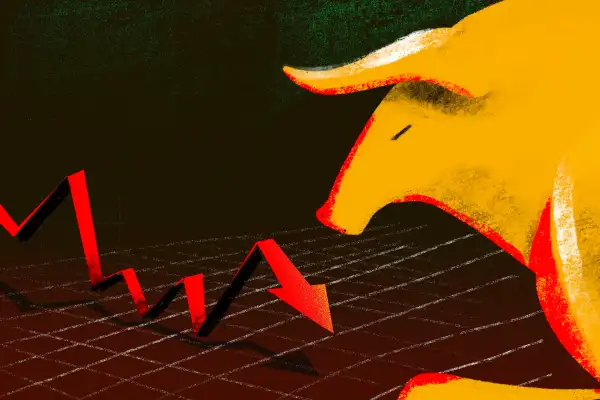Are Stocks Headed for a Bull Market? Here’s What Experts Say
Money is not a client of any investment adviser featured on this page. The information provided on this page is for educational purposes only and is not intended as investment advice. Money does not offer advisory services.

The S&P 500 is up around 10% in 2023, which is welcome news for investors given the benchmark index's 20% losses last year. Does this mean the long-awaited bull market is just around the corner?
Despite worries about a potential recession, contradictory data about the strength of the labor market and ongoing uncertainty about the health of the banking sector, some investors are optimistic about where stock prices are headed.
Many are eager for the next bull market, which refers to a period when stocks are going up — most commonly defined as when prices have risen at least 20% from their previous low. A bear market is the opposite: when stocks fall at least 20% from their previous high.
Stocks have been stuck in a bear market
Right now, the S&P 500 index (which is often used as a proxy for the U.S. stock market as a whole) is stuck in a persistent bear market after hitting its most recent low in October. The Nasdaq Composite, on the other hand, is heavily weighted towards tech stocks and exited its most recent bear market earlier this month as stocks of various tech giants soared.
Recent data from Citigroup showed that long positions in the stock market (i.e., bets that stocks prices will go up) outnumbered short positions by a factor of nine to one last week, and analysts from Fundstrat recently predicted a 20% run-up in stock prices this year.
It's no wonder that some experts are even arguing that a bull market has already begun — especially now that concerns about the debt ceiling and banking sector crisis are "abating rapidly," market analyst Ed Yardeni, president of Yardeni Research, said in a recent note. It's difficult to determine exactly when a bull or bear market has actually begun before a 20% rise or fall in stock prices. That means a lot of determinations about bull and bear markets happen retroactively.
While some experts expect stocks to keep climbing, others say not so fast. Stocks' recent gains don't necessarily mean a major rally is around the corner, Morgan Stanley equity strategist Michael Wilson wrote in a note to clients last week.
Wilson says earnings estimates are too high, which could lead to losses down the road when investors encounter lower-than-expected earnings reports from companies. He adds that investors are wrongly anticipating rate cuts from the Federal Reserve this year. The Fed has been raising interest rates since early 2022 — a move that has been weighing on the price of financial assets like stocks. While the central bank recently signaled that an end to interest rate increases may be in sight, a pause in rate hikes is very different from cutting rates. That's not to mention that there are signs that consumers are spending less, which could hurt companies' profits and their stock prices
Even though a default crisis has likely been averted, Wilson also argues the possibility that raising the debt ceiling will have negative repercussions for the market over the long term. That’s because the Treasury Department may use the higher debt ceiling to issue new debt, which could push bank borrowing costs higher and, in term, limit liquidity for other financial assets, like stocks.
Callie Cox, a U.S. investment analyst at eToro, also cautions investors against counting on a bull market too soon. There are plenty of risk factors that could push stocks below their October low, she says, including mixed labor market data (unemployment is low, but wage growth is very slow by historical standards) and the looming risk of a recession.
If a recession hits corporate earnings, for instance, “you'd have an argument for stocks to fall below that October low, and that would be a continuation of the bear market,” Cox says.
How to prepare for a bull market
No one has a crystal ball when it comes to the stock market. That’s why financial advisors generally tell their clients to create a long-term investing plan and stick with it.
“Some of the best days in the S&P 500 have occurred right after market drawdowns,” David Li, wealth partner at J.P. Morgan Wealth Management, recently told Money. You don't want to miss out on those best days, which is why advisors tend to recommend not pulling your money out of the market when volatility has you spooked.
It’s also impossible to predict when a new bull market will begin (or if one has begun already), and investing consistently over a long time horizon can help ensure that you’re well positioned to take advantage of the recovery.
"History has mounds of data showing that the stock market can power through crises over time," Cox says. And while there's a very good chance we'll see another bull market down the road, "we're not sure how much time that could take."
Investors Are Pessimistic About the Stock Market. That Could Be a Good Thing
The Fed May Pause Interest Rate Hikes. How Should You Prepare Your Investment Portfolio?
Here’s the Best Day of the Week for the Stock Market So Far in 2023

